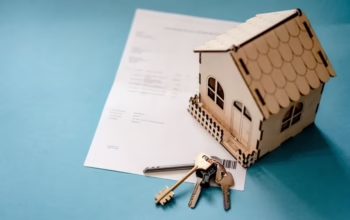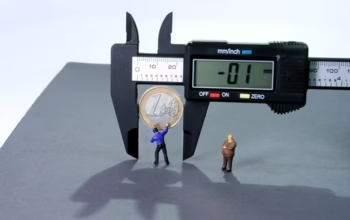The Siren Song of “Guaranteed Approval”: Why You Must Think Twice Before Getting a No-Credit-Check Loan
You’re in a tight spot. The rent is due, the car just made a sound you can only describe as “expensive,” or a medical bill has appeared out of nowhere. Your savings are thin, your credit score has seen better days, and the idea of applying for a traditional loan feels hopeless. Then, you see it. A bright, flashing ad online: “Cash in 24 Hours! No Credit? No Problem! Guaranteed Approval!”
It sounds like a lifeline. A quick, simple solution to an immediate, stressful problem. There are no hoops to jump through, no judgmental loan officers, and no fears of rejection based on your past financial mistakes. This is the alluring promise of the no-credit-check loan.
But this promise is a siren song, luring financially vulnerable people towards treacherous rocks. While it seems like a helping hand, a no-credit-check loan is often a trap in disguise, designed to profit from desperation. Before you click that “Apply Now” button, it is absolutely critical to understand the true, devastating cost that often hides behind the promise of easy money. This isn’t just about borrowing—it’s about protecting your financial future.
What Exactly Is a No-Credit-Check Loan?
A no-credit-check loan is exactly what it sounds like: a type of loan where the lender does not perform a “hard” credit inquiry with one of the three major credit bureaus (Equifax, Experian, or TransUnion) to review your credit history.
Traditional lenders, like banks and credit unions, rely heavily on your credit score to assess risk. A good score suggests you’re a reliable borrower, while a low score signals a higher risk of default. By skipping this step, no-credit-check lenders open their doors to everyone, regardless of their credit history.
These loans are most commonly found in these forms:
- Payday Loans: Short-term, high-cost loans, typically for a few hundred dollars, that are meant to be repaid on your next payday.
- Auto Title Loans: Loans where you use your car’s title as collateral. You get cash, but if you fail to repay, the lender can legally seize your vehicle.
- Some High-Interest Installment Loans: While some installment loans are legitimate, predatory versions exist that skip the credit check but charge astronomical interest rates over a period of months or years.
The appeal is undeniable: speed and accessibility. But the business model isn’t built on helping you. It’s built on the high probability that you’ll struggle to repay the loan on its original terms. And that’s where the real trouble begins.
The Five Devastating Dangers Hiding in the Fine Print
Why should you be so wary? Because the convenience comes at a price—one that can trigger a financial avalanche. Let’s break down the five most significant dangers.
Danger #1: The Astronomical Cost (The APR Nightmare)
This is the single most important factor to understand. No-credit-check lenders don’t check your credit because they don’t need to. They mitigate their risk by charging interest rates and fees that are, by any reasonable standard, exorbitant.
The key metric to look at is the Annual Percentage Rate (APR). The APR represents the true yearly cost of a loan, including interest and all fees. While a traditional personal loan might have an APR between 6% and 36%, no-credit-check loans can have APRs of 300%, 400%, or even higher.
Let’s put that into perspective with a common payday loan scenario:
You need $500 to cover a car repair. You go to a payday lender, who offers you the money for a two-week term with a $75 fee. That fee might not sound outrageous at first. It’s just $75, right?
Wrong. Let’s calculate the APR to see the true cost.
- Calculate the daily interest rate:
- Divide the fee by the loan amount: (or 15% for two weeks).
- Divide that by the loan term in days: per day.
- Calculate the annual rate:
- Multiply the daily rate by the number of days in a year: .
Your two-week, $75 fee is equivalent to taking out a loan with a 391% APR. If you borrowed that $500 for a full year under these terms, you would owe nearly $2,000 in interest and fees alone. Suddenly, that “simple fee” is revealed for what it is: a brutally expensive form of debt.
Danger #2: The Debt Trap (The Hamster Wheel of Rollovers)
Predatory lenders know that a person who needs $500 today is unlikely to have a spare $575 in two weeks. In fact, their entire business model is built around this reality. When you can’t pay the loan back on the due date, they offer you a solution: a “rollover” or “renewal.”
Here’s how it works: Instead of paying back the full $575, you just pay the $75 fee. In exchange, the lender extends your loan for another two weeks and charges you another $75 fee.
It sounds like a temporary reprieve, but you’ve just paid $75 to not pay down your debt. You still owe the original $500. After the next two weeks, you’ll owe another $75.
- Initial Loan: Borrow $500, owe $575.
- After 2 weeks: You can’t pay. You pay $75 to roll it over. You’ve spent $75 and still owe $500.
- After 4 weeks: You still can’t pay. You pay another $75. You’ve now spent $150 and still owe the original $500.
- After 6 weeks: You pay another $75. You’ve spent $225—nearly half the original loan amount—in fees alone, and you’ve made zero progress on the principal.
This is the debt trap. It’s a vicious cycle that is incredibly difficult to escape, draining your income with fee after fee while the original debt remains untouched.
Danger #3: The Collateral Risk (Losing Your Lifeline)
This danger is specific to auto title loans, one of the most pernicious forms of no-credit-check lending. With a title loan, you hand over the physical title to your car as collateral for a loan that is often worth far less than the vehicle itself.
You get the cash and can keep driving your car—for now. But the loan agreement gives the lender the right to repossess your vehicle if you default. And “default” can happen after just one missed payment.
Losing your car isn’t just an inconvenience; for many people, it’s catastrophic. It can mean losing your ability to get to work, take your kids to school, or buy groceries. You took out a loan for a few hundred or a thousand dollars to solve a short-term problem, and you ended up losing an asset worth many times more, along with your independence.
Danger #4: Aggressive Collection Tactics and Hidden Fees
The fine print in these loan agreements is often a minefield of extra fees. You might find penalties for late payments, non-sufficient funds (NSF) fees if an automatic withdrawal bounces, and other obscure charges.
Furthermore, the collection practices of some of these lenders can be relentless and aggressive. According to the Consumer Financial Protection Bureau (CFPB), common complaints include barrages of phone calls to the borrower, their family, and even their workplace, along with threats of legal action. This adds immense emotional and psychological stress on top of the already heavy financial burden.
Danger #5: Zero Positive Impact on Your Credit Score
Perhaps the most insidious part of this whole equation is that even if you manage to pay the loan back on time, it does you no good in the long run.
The vast majority of payday and title lenders do not report your on-time payments to the major credit bureaus. You are paying a premium price for a loan, navigating all the risks, and at the end of it all, your credit score hasn’t improved one bit. You’re in the exact same position as before, just poorer for it.
However, if you default on the loan and it’s sold to a collection agency, that collection account will almost certainly be reported, crushing your credit score for years to come. It’s a one-way street where success is ignored and failure is severely punished.
How to Spot a Predatory Loan: The Red Flags 🚩
- “Guaranteed Approval” or “No Credit Check”: This is the biggest red flag. Legitimate lenders always assess risk.
- Lack of Transparency About APR: They’ll focus on the “small fee” but will be vague or evasive if you ask for the APR.
- Extreme Urgency and Pressure: They push you to sign immediately, before you have time to read the terms or explore other options.
- Excessively Short Repayment Terms: A 14-day or 30-day term for a significant loan is designed to be difficult to meet.
- Access to Your Bank Account as a Condition: Many require you to sign a “voluntary” wage assignment or allow automatic electronic withdrawals, giving them the power to drain your account on payday.
Safer Alternatives: Better Ways to Get Emergency Cash
If you’re in a financial bind, please know that you have better, safer options. They may require a bit more effort, but they won’t trap you in a cycle of debt.
- Paycheck Alternative Loans (PALs) from Credit Unions: Many federal credit unions offer PALs specifically as an alternative to payday loans. By law, the APRs on these loans are capped at 28%, application fees are minimal, and terms range from one to twelve months.
- Negotiate with Your Creditors: If you’re struggling to pay a bill, call the company. Many utility companies, landlords, and medical providers will offer a payment plan or a temporary extension if you explain your situation.
- Local Non-Profits and Charities: Organizations like the United Way, Salvation Army, and local community action agencies often have programs to help with rent, utilities, or other emergency needs. Dialing 211 on your phone can connect you to local resources.
- Ask for a Paycheck Advance from Your Employer: Some companies are willing to provide an advance on your salary. There are also reputable apps like Earnin or Dave that allow you to access a portion of your earned wages before payday for a small or optional fee.
- Seek a Loan from a Friend or Family Member: While it can be uncomfortable, a personal loan from a trusted loved one will have far better terms than a predatory loan. Just be sure to put the agreement in writing to avoid future misunderstandings.
- Work on Building Your Credit for the Future: For long-term solutions, consider a secured credit card or a credit-builder loan. These are designed to help people with poor or no credit establish a positive payment history, opening the door to affordable loans in the future.
The Real Solution: Your Financial Health is Worth Protecting
The allure of a no-credit-check loan is the promise of an instant fix. But true financial wellness isn’t about quick fixes; it’s about building a stable foundation. The real solution lies in addressing the issues that lead to needing emergency cash in the first place: creating a budget, building an emergency fund (even if it’s just $500), and taking slow, steady steps to improve your credit score.
Thinking twice before getting a no-credit-check loan isn’t just a financial decision—it’s an act of self-preservation. You are protecting yourself from a predatory system designed to exploit your moment of need. Your financial future is far too valuable to trade for the false promise of easy money. Explore the safer alternatives, seek help from community resources, and take the first step towards a more secure and empowered financial life.



